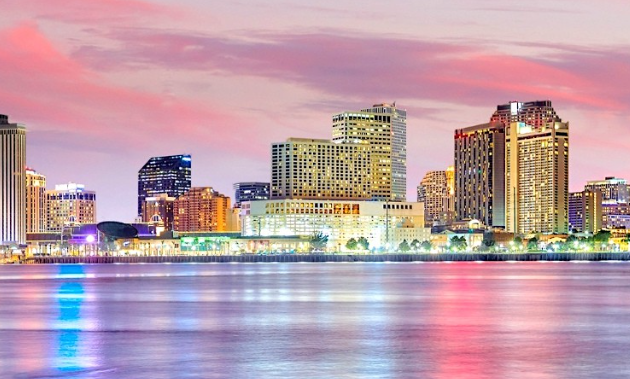H2O stands as Earth’s most invaluable asset, essential for the preservation of life itself. Nevertheless, when tainted, it has the potential to inflict illness and fatality upon individuals. In Louisiana, a specific municipality has proclaimed a state of crisis due to the quality of its water supply.
Last Friday, on September 22nd, Mayor LaToya Cantrell of New Orleans took action by officially endorsing an Emergency Declaration. This decisive response comes as a result of the encroachment of saltwater, which poses a significant threat to the city’s water reservoirs. The situation was exacerbated by diminished water levels in the Mississippi River, rendering it more susceptible to the infiltration of saltwater originating from the Gulf of Mexico. The detrimental impact extends beyond the city limits, affecting the neighboring parishes that rely on this second-longest river in the United States for their freshwater supply.
Authorities from the US Army Corps of Engineers have issued a cautionary notice, expressing concerns that a saltwater wedge might advance upstream and reach water treatment facilities as early as October. In response to this imminent threat, efforts are underway to augment the influx of fresh water to the affected area and decelerate the movement of water emanating from the Gulf.
Corps Colonel Cullen Jones has articulated that a freshwater flow rate exceeding 300,000 cubic feet per second is imperative to effectively ward off the intrusion of saltwater. Unfortunately, the current flow rate in Belle Chasse, situated to the south of New Orleans, stands at approximately 150,000 cubic feet per second, falling significantly short of the required threshold.
Governor John Bel Edwards, a Democrat, convened a conference last Friday, emphasizing the gravity of the situation at hand. He has formally requested assistance from the federal government, a request that received approval from President Joe Biden in the form of a federal emergency declaration. Governor Edwards has elucidated that nearly 20% of the state is vulnerable to the encroaching saltwater wedge.
The adverse effects of this wedge have already manifested in southern Plaquemines Parish, where residents have been dependent on bottled water since June to meet their hydration needs. In the near future, reverse osmosis water purification units will be dispatched to aid in the removal of salt from the drinking water supply. Moreover, several other parishes, Orleans included, have also expressed the need for water purification units to address this pressing issue.








